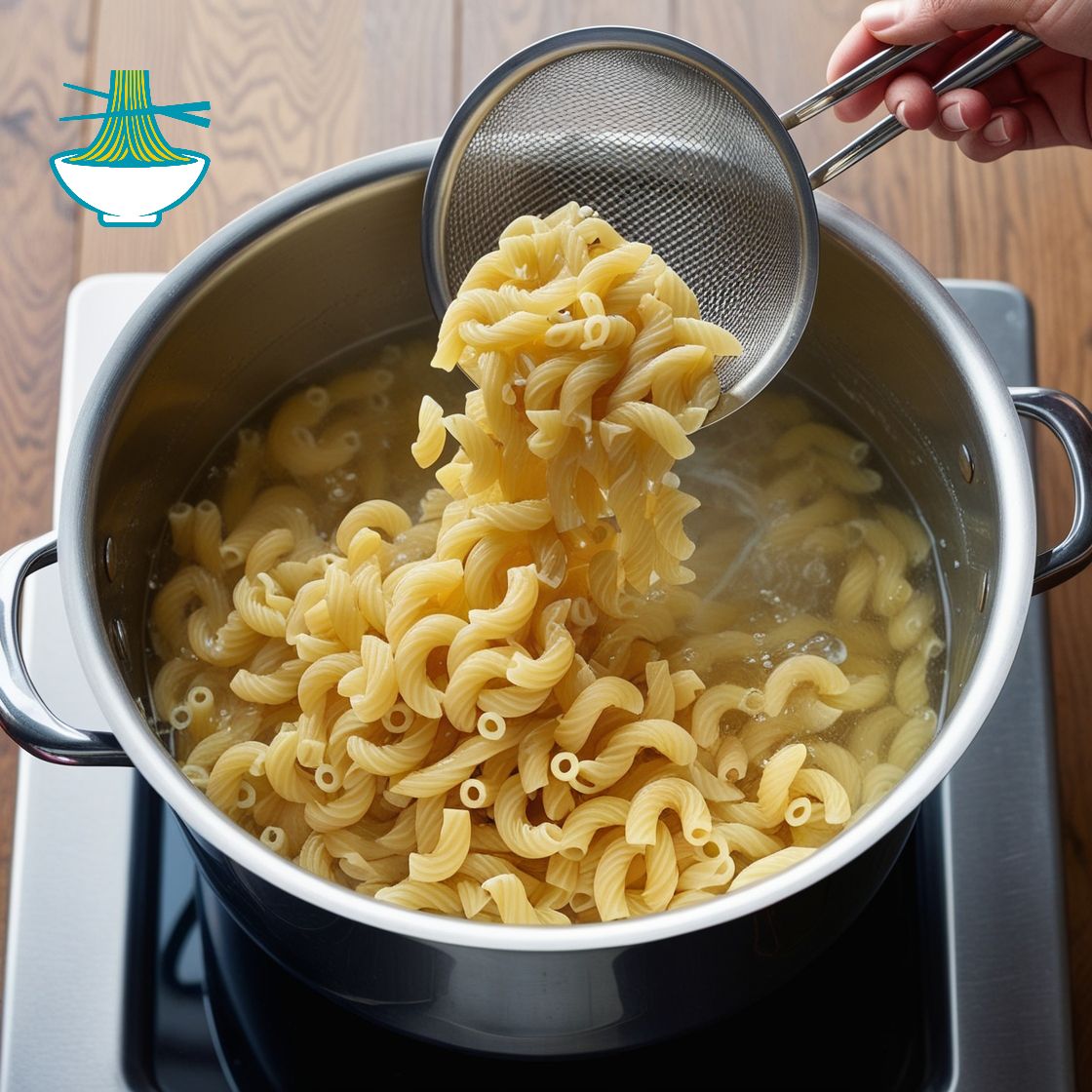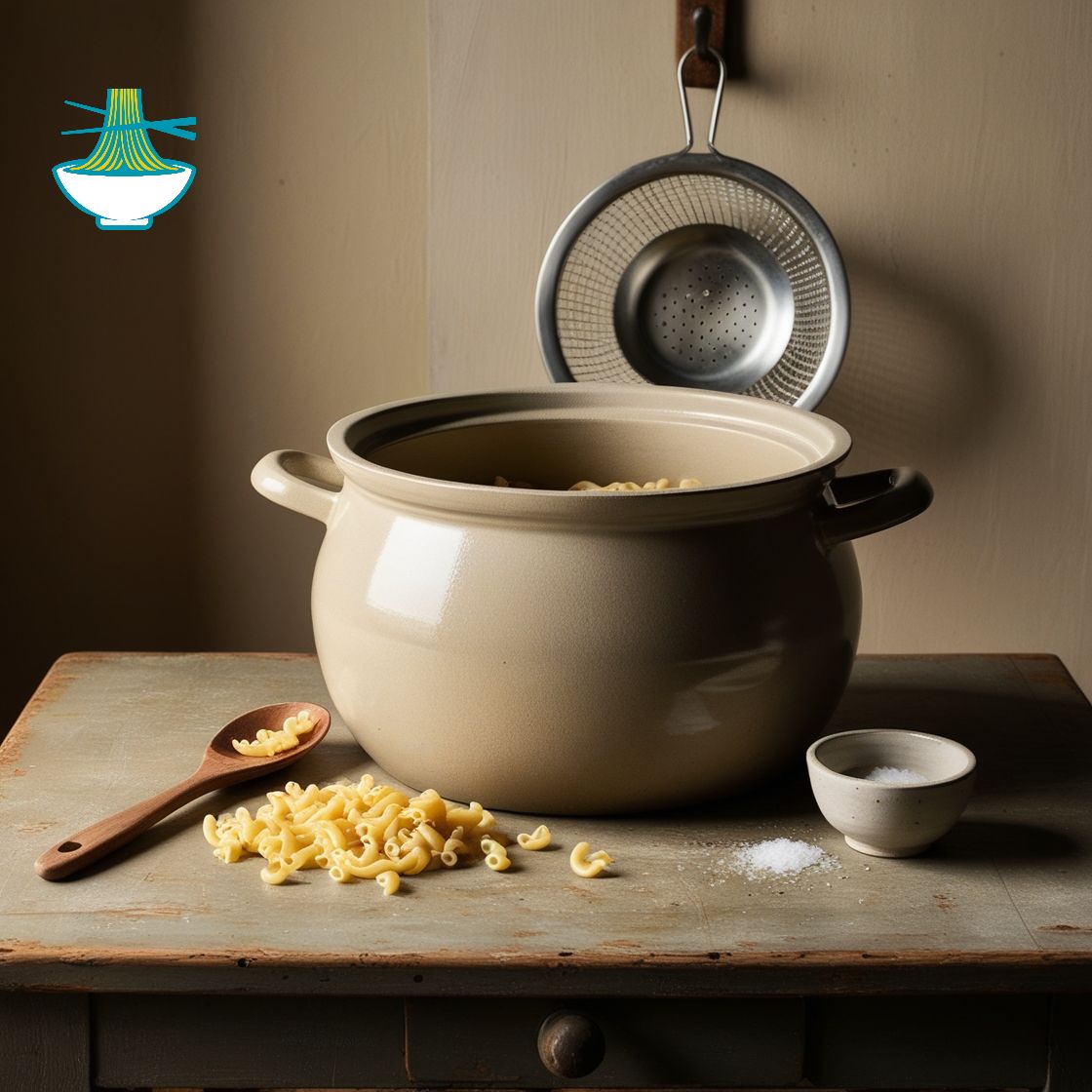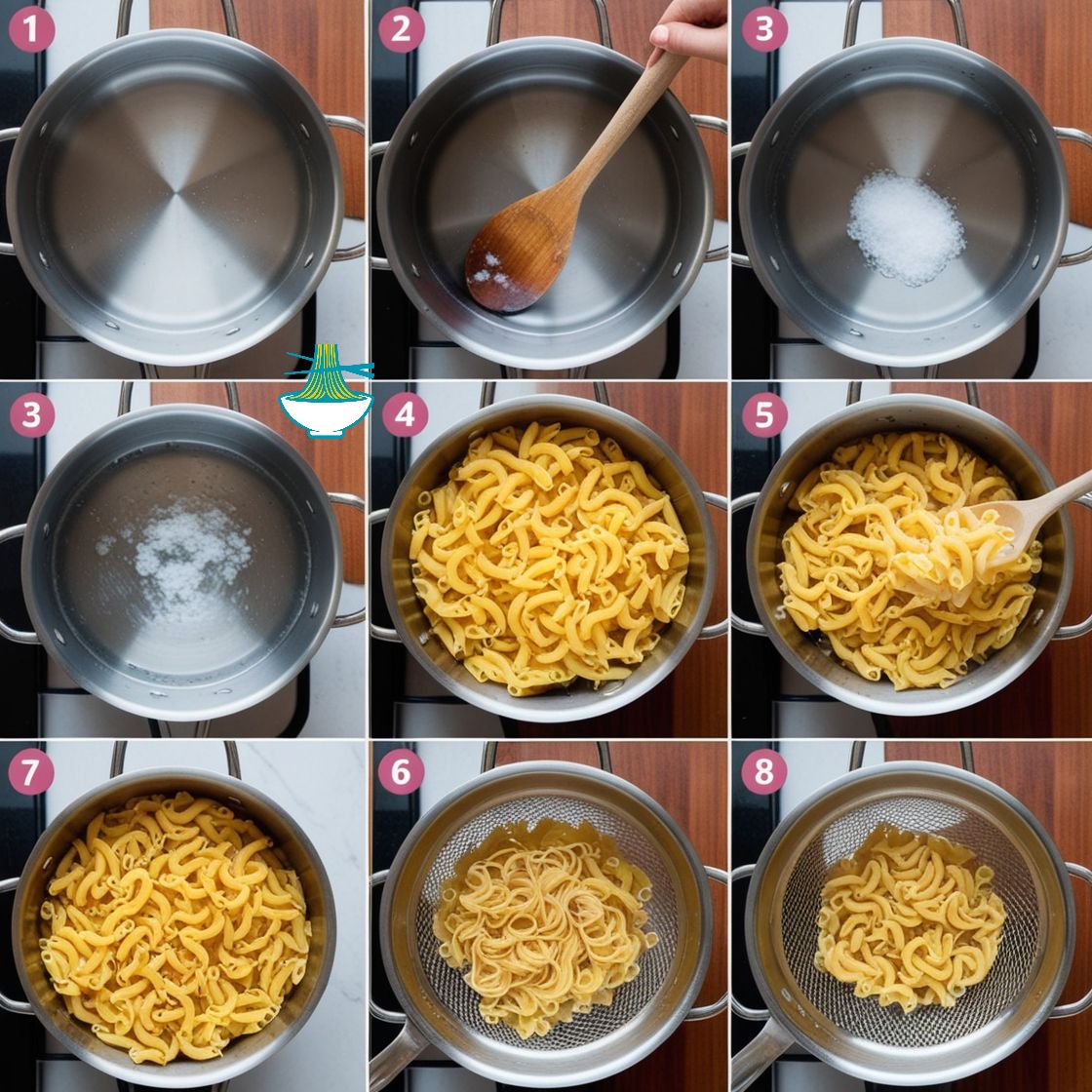Boiled macaroni is a classic and versatile pasta dish, perfect for a quick meal or as a base for various recipes. Made from durum wheat semolina, macaroni is a staple ingredient in many households, known for its firm texture and ability to complement a wide range of sauces, vegetables, and proteins.

Macaroni, a type of pasta originating from Italy, has been a beloved dish for centuries. Its name is derived from the Italian word "maccheroni," and it is traditionally made from durum wheat semolina, which gives it a high protein and gluten content. The pasta became popular in the United States in the 18th century and has since become a common ingredient in many American dishes, including the iconic macaroni and cheese.

Ingredients
- 1 pound of macaroni pasta
- 4-6 quarts of water
- 1 tablespoon of salt
Equipment
- Large pot
- Strainer
Step-by-Step Instructions
1. Boil Water: Fill a large pot with 4-6 quarts of water and bring it to a rolling boil over high heat.
2. Add Salt: Once the water is boiling, add 1 tablespoon of salt.
3. Cook Pasta: Add 1 pound of macaroni pasta to the pot. Stir occasionally with a wooden spoon to prevent sticking.
4. Check for Doneness: Cook the pasta for 8-10 minutes, or until it is tender but still firm to the bite (al dente). Taste a piece to check for the desired texture.
5. Drain Pasta: Once cooked, remove the pot from the heat and carefully pour the pasta into a strainer.
6. Rinse Pasta: Rinse the pasta under cold running water to stop the cooking process and remove excess starch.
7. Shake Off Water: Shake the strainer to remove any excess water.
8. Serve: Serve the boiled macaroni immediately or use it as a base for other recipes.
Tips
- Use a Large Pot: Ensure the pasta has enough room to cook evenly without sticking together.
- Salt the Water: Enhances the flavor of the pasta.

Boiled macaroni is a classic, easy-to-make pasta dish made from durum wheat semolina. This versatile ingredient pairs well with a variety of sauces, vegetables, and proteins. Learn how to cook macaroni to perfection with our step-by-step guide. Discover the history of macaroni and its journey from Italy to becoming a staple in American cuisine. Perfect for busy weeknights or lazy weekends, boiled macaroni is a nutritious, low-fat, low-sodium, and low-cholesterol meal option.
Nutrition Value:
1. 1 Pound of Macaroni Pasta
- Calories: Approximately 1,600 kcal
- Carbohydrates: 320 g
- Protein: 56 g
- Fat: 8 g
- Sodium: 0 mg (without added salt)
- Cholesterol: 0 mg
- Vitamins:
- B Vitamins: Good source of B vitamins like thiamine, riboflavin, niacin, and folate, which are essential for energy production and cell function.
- Vitamin E: Small amounts present.
- Minerals:
- Iron: Helps in the formation of red blood cells.
- Magnesium: Important for muscle and nerve function.
- Phosphorus: Contributes to bone health.
- Nutritional Benefits: Macaroni pasta is a good source of complex carbohydrates, providing sustained energy. It also offers protein, essential for muscle repair and growth. The B vitamins in pasta help in energy metabolism and overall cellular function.
2. 4-6 Quarts of Water
- Calories: 0 kcal
- Carbohydrates: 0 g
- Protein: 0 g
- Fat: 0 g
- Sodium: 0 mg (without added salt)
- Cholesterol: 0 mg
- Vitamins: None
- Minerals:
- Trace Minerals: May contain very small amounts of minerals depending on the water source, but not significant.
- Nutritional Benefits: Water is essential for hydration, digestion, and the overall functioning of the body. It helps in the process of cooking pasta by hydrating the starches and ensuring even cooking.
3. 1 Tablespoon of Salt
- Calories: 0 kcal
- Carbohydrates: 0 g
- Protein: 0 g
- Fat: 0 g
- Sodium: Approximately 2,300 mg
- Cholesterol: 0 mg
- Vitamins: None
- Minerals:
- Sodium: Major mineral found in salt, important for fluid balance and nerve function.
- Nutritional Benefits: While salt is not a significant source of vitamins or minerals in itself, sodium is crucial for maintaining fluid balance and proper muscle and nerve function. However, excessive consumption of salt can lead to health issues such as hypertension.
Summary
- Macaroni Pasta: Provides essential carbohydrates, protein, and B vitamins for energy and muscle function. It is also a good source of iron, magnesium, and phosphorus.
- Water: Essential for hydration and proper cooking of pasta.
- Salt: Adds flavor and provides sodium, necessary for fluid balance but should be used in moderation to avoid health risks.


Comments